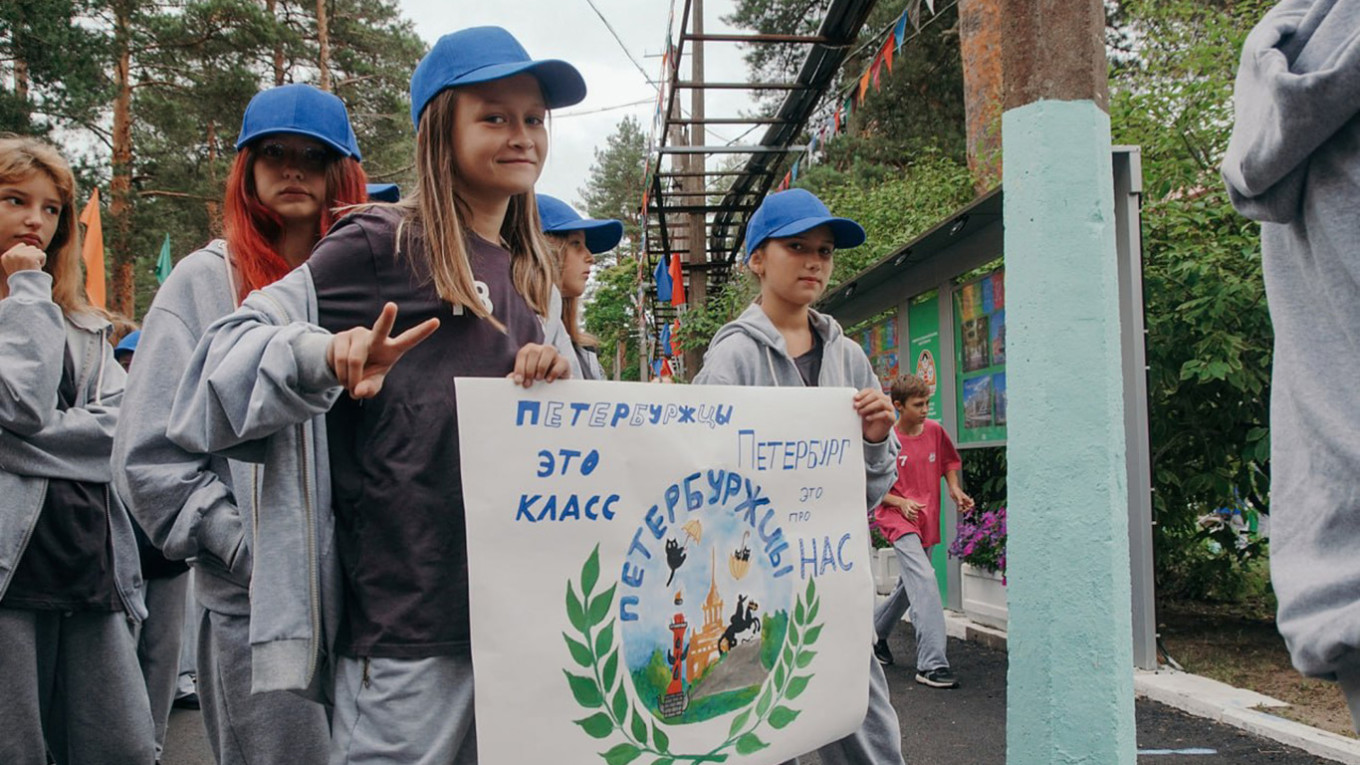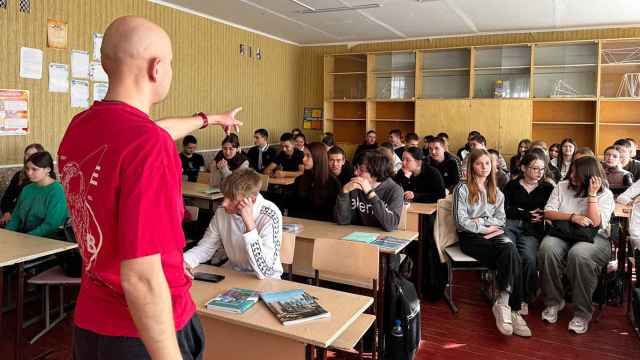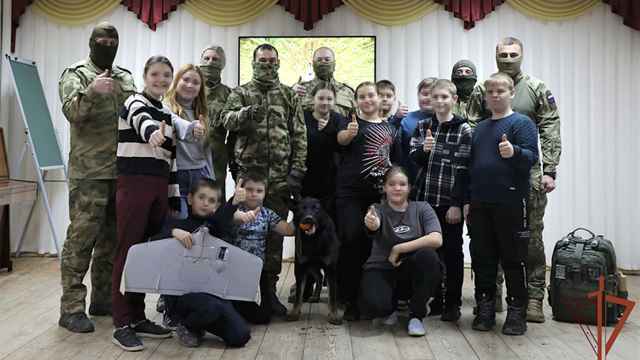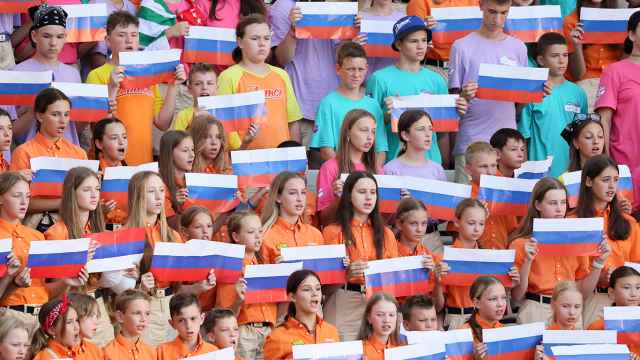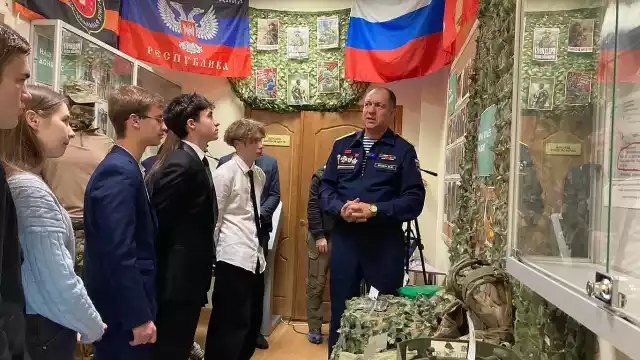Dozens of people dressed in the colors of the Russian flag gathered at the train station in Zelenogorsk just outside St. Petersburg in early June.
As the train appeared on the horizon, they started waving a large Russian flag. Onboard were 400 schoolchildren from Mariupol, arriving for their first session at the Druzhnykh (“Unity”) summer camp.
Three years prior, the governor of St. Petersburg signed a sister-city agreement with the occupying authorities of Mariupol, the Ukrainian port city that was razed to the ground in a devastating Russian siege just weeks beforehand.
“Since then, St. Petersburg has hosted children from Mariupol for every camp session — both in summer and winter,” said Governor Alexander Beglov.
This summer, Russian authorities are organizing five three-week camp sessions for children from the occupied city. Each session is led by child psychologists, St. Petersburg schoolteachers and camp counselors who recently graduated from teacher training college.
More than 2,000 schoolchildren from Mariupol in total are expected to attend camps in St. Petersburg this year.
Initially, Russian authorities billed these summer programs as health and wellness retreats for children who had lived under Russian shelling.
But from the very first sessions, children were also taught to develop respect and love for the country that seized their home city.
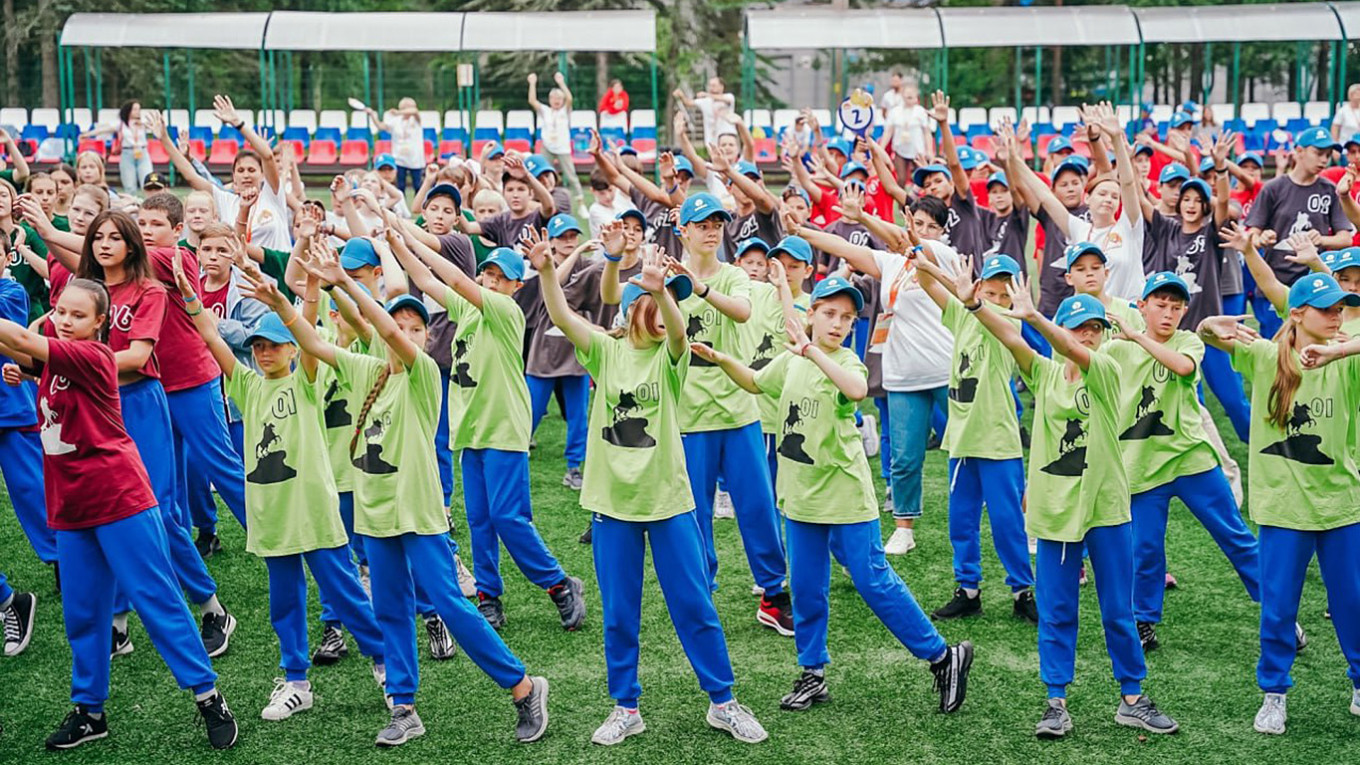
Today Ukraine has confirmed the deportation of 19,546 children from occupied Ukrainian territories to Russia, though experts say the real number is likely much higher.
In March 2023, the International Criminal Court issued arrest warrants for President Vladimir Putin and his children’s rights commissioner Maria Lvova-Belova in connection with these deportations.
Ukrainian experts say Russia is deliberately stripping these children of their Ukrainian identity and raising them to become Russians, turning minors into a new generation loyal to the Kremlin.
The educational program at Camp Druzhnykh lists goals that include fostering a national — that is, Russian — identity among the children.
Ahead of the Russia Day holiday on June 12, camp counselors took the children on a sightseeing tour of St. Petersburg, followed by a visit to the Russia — My History multimedia park to instill “love for the Motherland and respect for its past.”
The Petersburg Holidays program also includes what it calls a “targeted approach to developing patriotism,” meaning the formation of love for Russia tailored to children and adolescents’ mental and emotional development.
On Russian Language Day, camp counselors invited children who liked to draw to create bookmarks depicting the poet Alexander Pushkin and take a quiz on his poetry afterward.
“The camp administration always made it clear that the children were now on Russian territory — that they were part of Russia,” a child psychologist who worked in this camp told The Moscow Times, speaking on condition of anonymity for safety reasons. “I think those who came to the camp were ready to become part of the ‘big country’ [Russia]. Otherwise, their parents probably wouldn’t have let them go.”
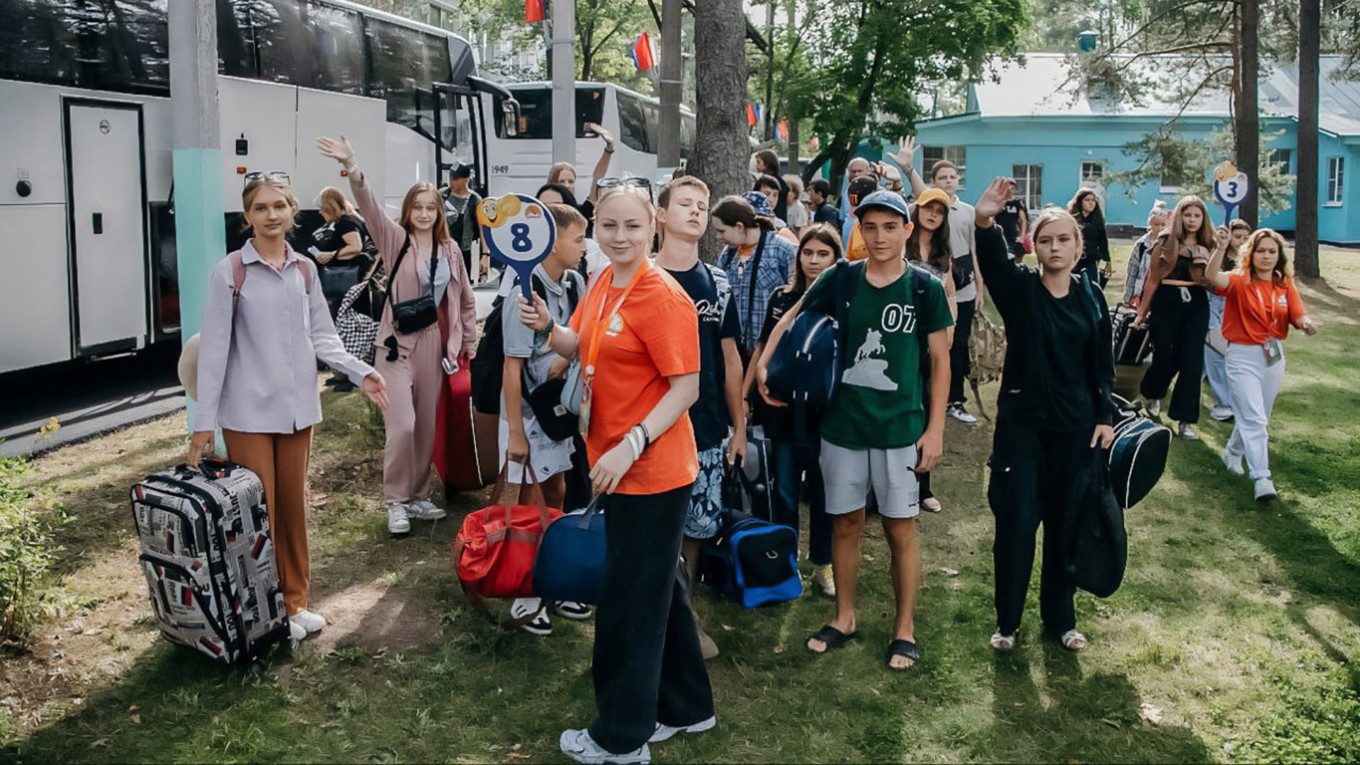
This year, the Museum of the Siege of Leningrad held a children’s art contest on the topic of war. Among the participants were children from Mariupol.
Already in St. Petersburg, some of them spoke about their work. One of them, nine-year-old Pavel Grinev, said he made a cardboard tank with his father emblazoned with the pro-war symbol Z.
“In 2022, we tried to shield the children completely from the horrors of war. They remember that time as filled with happy memories with their parents. We were always together,” Pavel’s father told local media.
But according to a child psychologist who worked at the Druzhnykh camp, many children showed signs of PTSD as a result of witnessing the war and their relatives’ deaths during the occupation.
“The trauma of war absorbed all the other traumas in their lives like a sponge. We worked through almost their entire life stories with them,” the psychologist said, also speaking on condition of anonymity.
The PTSD symptoms even emerged during the group’s city tours.
“When the children were on a boat on the Neva River and heard the cannon fired from the Peter and Paul Fortress, they dropped flat on the deck, face down — no one had warned them it was just a ceremonial shot,” the psychologist recalled.
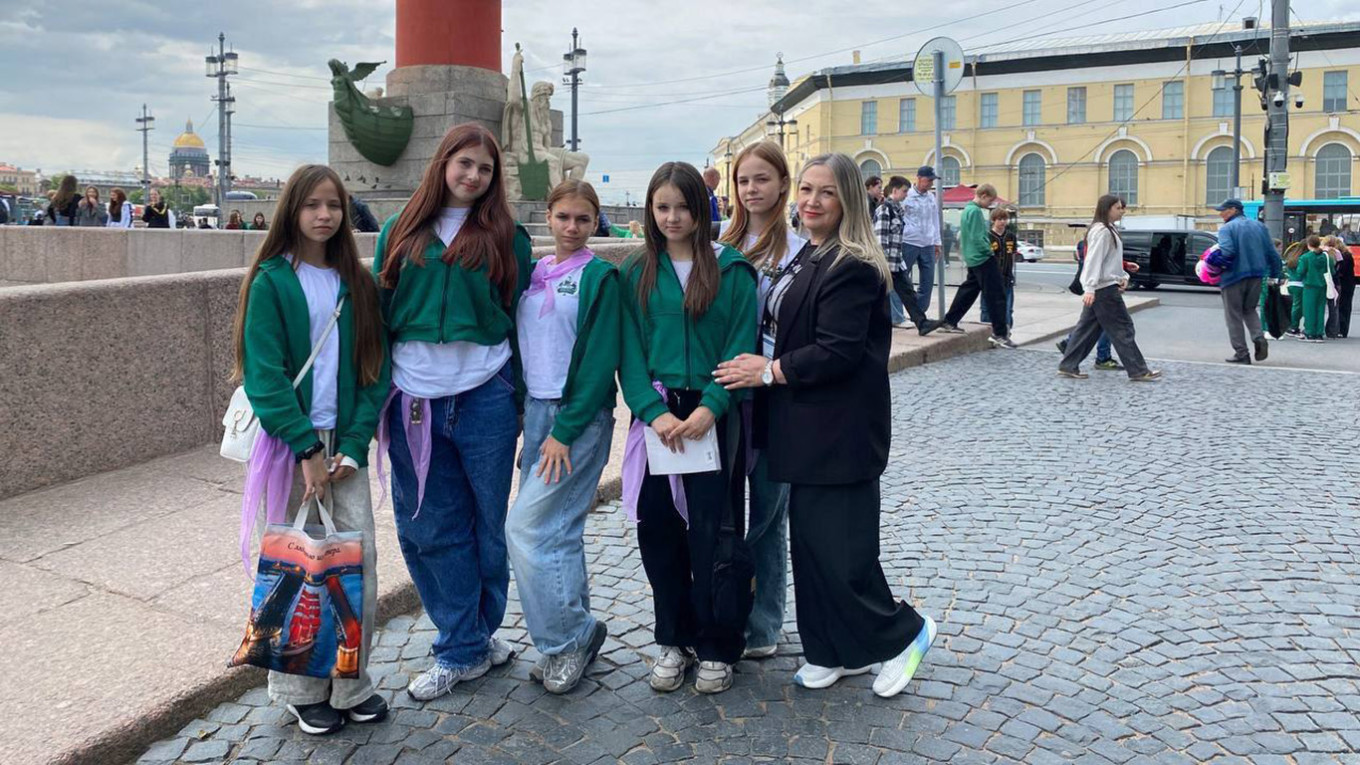
Excursions were not the only tool used by camp administrators to instill love for Russia. On June 10, children painted St. Petersburg landmarks onto tote bags with their counselors.
“This is Piter, baby,” one boy wrote on his bag, using a colloquial nickname for the city.
A few days later, on Russia Day, counselors asked the children, “What does Russia mean to you?” and filmed their answers.
“It’s my homeland above all. It’s friendship, care and freedom of speech,” said one boy of about 11 years old.
The camp also organizes a career fair where children can learn about the job market in Russia. In June, it featured a police college that accepts students as early as ninth grade. Students from the college spoke to the children about the ceremonial police oath and showed them how to take fingerprints.
“Why did I go? For me, these are just children — they’re not to blame for anything. I wanted to help them because they were deeply traumatized. I wanted to show them that not all of Russia is soldiers and rapists,” the child psychologist told The Moscow Times. She was paid about 7,000 rubles (roughly $87) for the session.
Masha, a girl from Mariupol, also attended a session at the camp. Her school offered the trip to St. Petersburg as a reward for good grades. By the time she arrived at the camp, she already had a Russian passport. She never received a Ukrainian one because of Russia’s occupation.
Her name has been changed for safety reasons.
“When we got off the train, the atmosphere was just… overwhelming,” Masha told The Moscow Times, recalling her first day in Russia. “When the girls started dancing, it gave me goosebumps.”
“I think they want to help somehow, to ease the psychological trauma we carry from what we’ve been through,” she said, describing her camp counselors and organizers. “These people understand what kids in the conflict zone have experienced and want to offer some kind of support.”
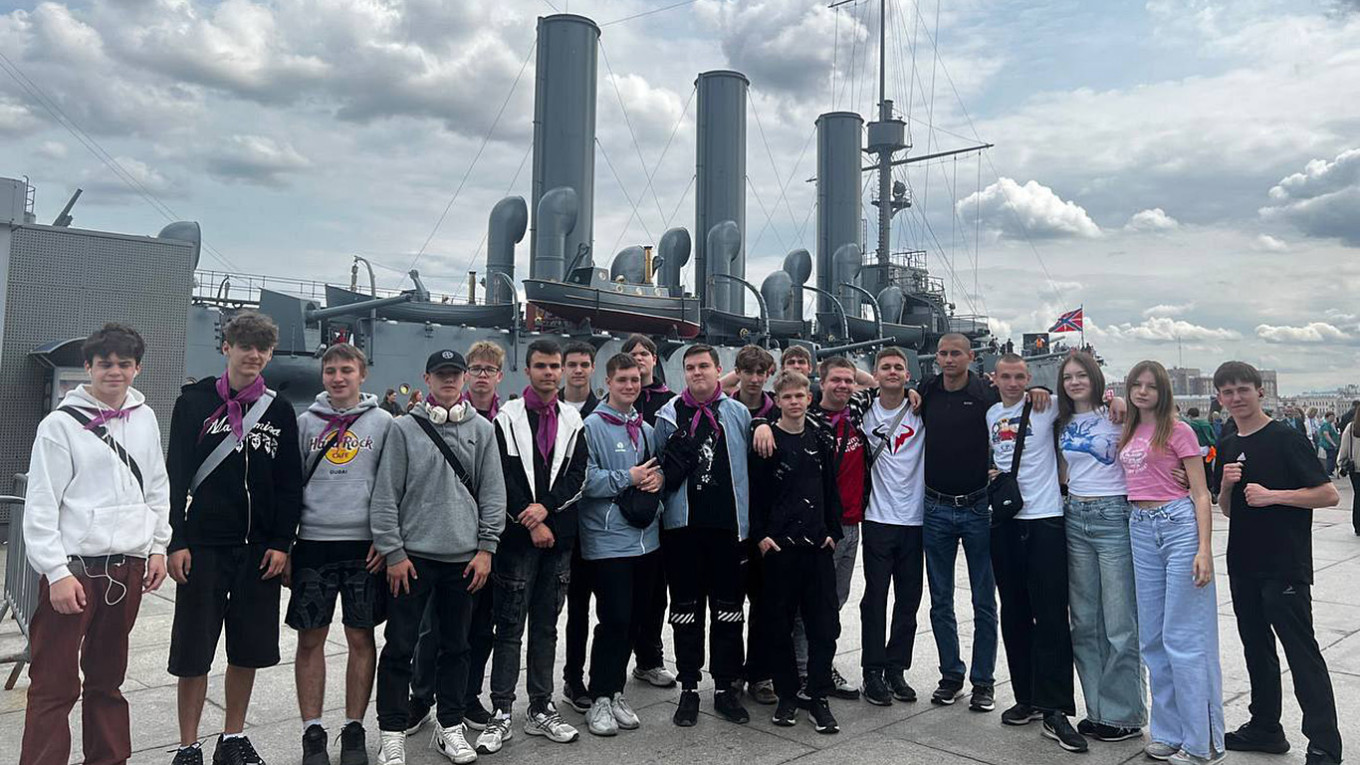
Now in high school, Masha quietly dreams of moving to St. Petersburg for university. But when she talks about the future, there is a sadness in her voice.
“[In St. Petersburg] you need to be able to support yourself, to have some kind of income. Knowing what the salaries are like in Mariupol, I don’t think I’ll ever be able to move there,” she said.
“I will study to become a philologist, then work, get a second degree and maybe land a job in some city administration making 35,000 rubles ($444) a month. After that, I don’t know,” she said.
“I used to think living in Russia was easy. But then my mom tried to get a job at Pyaterochka [a discount supermarket chain], and the salary was under 20,000 rubles (less than $253) — while the country’s minimum subsistence level is 17,000 ($215). That’s when I realized life in Russia is hard. You don’t live — you survive.”
A Message from The Moscow Times:
Dear readers,
We are facing unprecedented challenges. Russia's Prosecutor General's Office has designated The Moscow Times as an "undesirable" organization, criminalizing our work and putting our staff at risk of prosecution. This follows our earlier unjust labeling as a "foreign agent."
These actions are direct attempts to silence independent journalism in Russia. The authorities claim our work "discredits the decisions of the Russian leadership." We see things differently: we strive to provide accurate, unbiased reporting on Russia.
We, the journalists of The Moscow Times, refuse to be silenced. But to continue our work, we need your help.
Your support, no matter how small, makes a world of difference. If you can, please support us monthly starting from just $2. It's quick to set up, and every contribution makes a significant impact.
By supporting The Moscow Times, you're defending open, independent journalism in the face of repression. Thank you for standing with us.
Remind me later.


